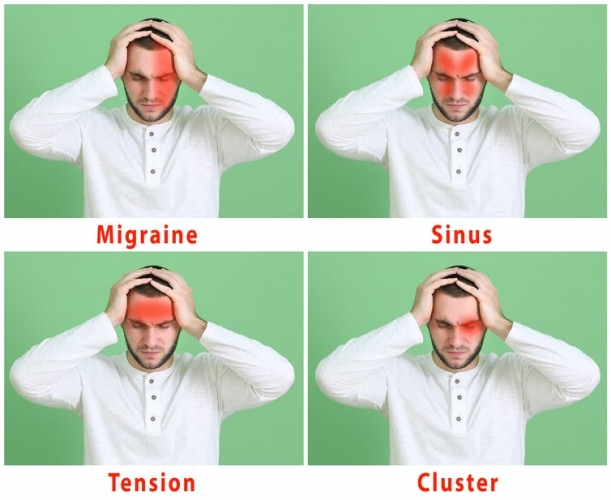From dull throbbing dehydration headaches to incapacitating migraines, a sore head is an extremely common complaint. This is perhaps especially true at the moment. Covid can cause them, as can sitting at desks for too long and not getting out of the house enough

Amanda Ellison
Even though they all entail pain, where the pain is can clue us into what type of headache we are experiencing. Pain in the face and forehead are markers of sinus-related headache whilst the sensation of a pneumatic drill somewhere in our cranium is often migraine.
But ultimately, all headaches are caused by vasodilation in the head – the widening of blood vessels near the brain. This stretches sensory receptors in the vessel wall and we feel that sensation as pain.
To understand why we need to think about the constraints the contents of our head are working under. Blood is toxic to brain tissue and so is kept separate through the blood-brain barrier. If a blood vessel leaks or breaks, this results in a haemorrhage and the death of the brain tissue the blood seeps into. So, if our blood vessels dilate beyond comfortable limits, the sensory receptors will fire off signals to the brain, which we interpret as pain.
Headaches are an early warning system. The best way to counteract them is to work out what they are warning us about.
1. Think beyond your head
Yes, headache pain is generated somewhere in our head, but headache is so much more than that.
The cause of our headache can sometimes come from our body or our behaviour. Frequent migraine sufferers intimately understand this and often religiously track their food intake and their activities as well as the weather in order to work out what triggers them.
Tension headache is a really good example of how this works. It feels like a tight band squeezing around your head with a tonne weight sitting on top for good measure. We are all aware of their occurrence at times of great emotional stress, but they can equally be caused by the stress we put on our body, with bad posture for example.
Taking too many things on, rushing around trying to get things done in negative time, and trying to be all things to all people are common behavioural markers that will predict a tension headache.
2. Listen to the pain
If you have a pain in your leg, it might stop you from playing in that tennis match or turning up for five-a-side football. You know that if you play on it, you might do more damage and your recovery will take longer.
But we don’t tend to do that with headache. We take a painkiller or an anti-inflammatory and carry on as normal even though our pain receptors are screaming at us that there is something wrong.
Sometimes it’s obvious – if you have a sinus headache you’re just going to have to wait for your sinuses to clear, so taking a painkiller or a decongestant may be a good approach – but sometimes our coping strategy can make things worse.
We may decide a bottle of wine and a takeaway is just the kind of treat we need to relax and de-stress. But both lead to dehydration, another ubiquitous cause of headache.
With your brain made of more than 70% water, if your kidneys need borrow some to dilute alcohol or salts and spices, it usually comes from this oasis. The brain loses water such that it literally shrinks in volume, tugging on the membranes covering the brain and triggering pain.
3. Use the brain’s natural painkillers
So what else can we do? One way is to lean into the brain’s natural painkiller system and to boost neurochemicals associated with happiness (such as serotonin and oxytocin) and reward (dopamine).
Having a laugh at a comedy, enjoying a good friend’s company or indulging in some intimacy with a partner will all boost these hormones to various degrees.
Each block pain signals coming from the body, not only helping you get a handle on your headache but also redressing the balance of neurochemicals that were the mechanism of your upset emotional state.
The knowledge that we can leverage our behaviour and our body to keep our brain’s neurochemicals in balance gives us a way to break the headache cycle.
So next time you have a headache for which the causes aren’t glaringly obvious – you’re not otherwise sick and you’ve been keeping hydrated – take a look at your life and see what you can change there. The pain, after all, is trying to tell you something.